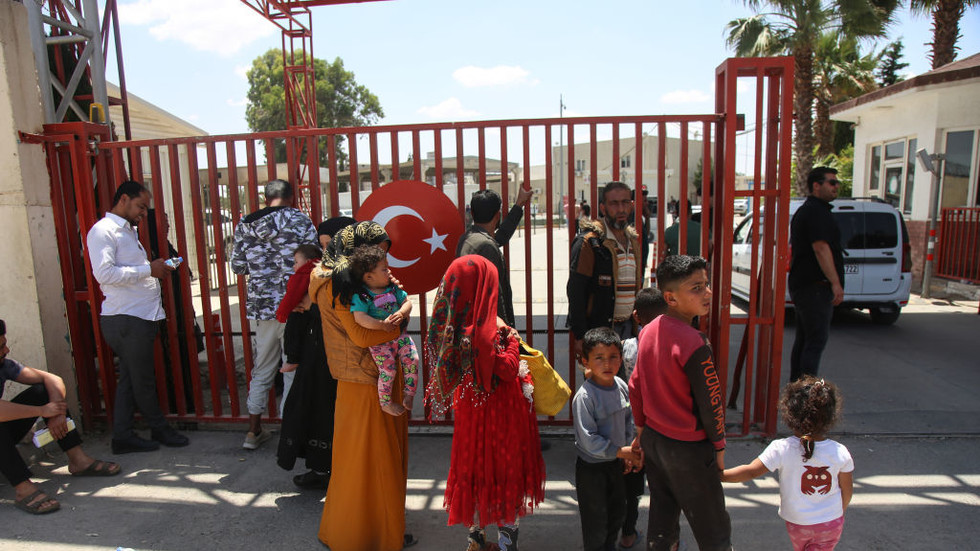An investigation by Politico and various other news outlets has highlighted alarming claims by migrants of facing torture and starvation within Turkish detention centers, which are financed by the European Union (EU). These facilities, known as “removal centers,” are part of a broader collaboration between the EU and Turkey aimed at controlling the influx of migrants, particularly since the 2015 Syrian refugee crisis. More than €11 billion has been funneled into Turkey from the EU to support the processing and accommodation of around four million migrants. This funding has also bolstered border security to deter further arrivals. However, Turkish President Recep Tayyip Erdogan has reportedly leveraged Turkey’s pivotal role in the migrant crisis to extract financial incentives and concessions from the EU, at times releasing large groups of migrants into Europe as a negotiation tactic.
The conditions reported within these removal centers are dire, with testimonies from 37 former detainees revealing systematic abuses including starvation, lack of medical care, and physical abuse designed to force migrants into signing requests for “voluntary” deportation. Turkish authorities, however, have dismissed these allegations, asserting that over 715,000 Syrians have returned to their homeland “voluntarily, safely and with dignity.” Between 2021 and 2022, Ankara claims it has deported over 66,000 migrants to Afghanistan, though sources cited by Politico suggest that the actual figure could be much higher. In a controversial pledge made during his re-election campaign, Erdogan promised to supervise the voluntary deportation of one million migrants back to northern Syria, a region deemed unsafe by EU regulations.
The EU itself has strict laws against deporting migrants to dangerous countries like Syria and Afghanistan, raising significant concerns about Turkey’s treatment of migrants in these centers. Despite the troubling conditions reported, EU officials have publicly stated that Turkey has autonomy regarding the use of the substantial EU funding it receives. A spokesperson for the European Commission emphasized that Turkey holds the responsibility for safeguarding the rights of refugees and managing migration within its borders, while urging Turkish authorities to thoroughly investigate the allegations of maltreatment.
The reported transformation of EU-funded “reception centers” into removal centers underscores a troubling shift in the focus of EU policy. Initially intended to provide support and services to migrants, these facilities have become sites of alleged abuse and coercion. Between various reports, there appears to be a significant disconnect between the EU’s legislative framework that protects migrants and the reality faced by many in Turkey. Critics argue that the EU’s financial support should not facilitate harsh treatment and exploitation of vulnerable populations, challenging the moral implications of funding systems that can lead to human rights violations.
The shift in approach from merely managing an inflow of migrants to expediting their deportation has implications not only for the migrants themselves but also for the broader dynamics of EU-Turkey relations. As Turkey grapples with a large population of migrants, the EU is increasingly reliant on Turkish cooperation to address the ongoing refugee crisis. However, the use of EU funds for the construction and operation of removal centers raises pressing ethical questions about European responsibility in the treatment of migrants. The situation calls for urgent dialogue to address human rights concerns and to ensure that the foundations of EU funding programs align with humanitarian principles and obligations.
As accusations against Turkey persist, the true scale of maltreatment within its detention centers remains a significant matter of contention. The EU must balance its priorities of border security with the protection of migrant rights, a task complicated by the increasingly complex political landscape in which Turkey operates. Continued scrutiny and oversight of Turkey’s migrant management practices, combined with sustained dialogue concerning adherence to international human rights standards, are essential for both the migrants affected and as a measure of the EU’s ethical commitments to human rights. Without addressing these grave concerns, the EU risks undermining its own values while standing on shaky ground in its partnership with Turkey.

